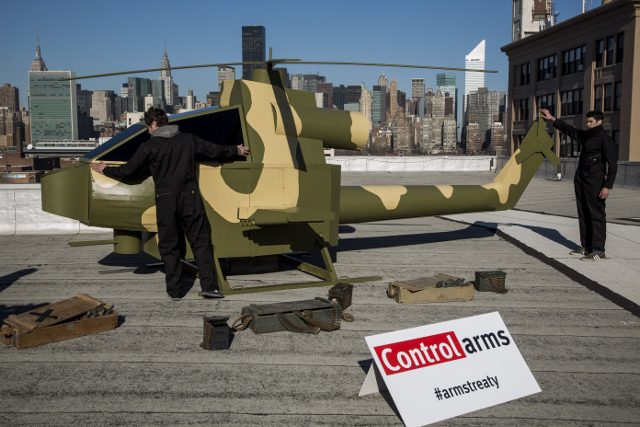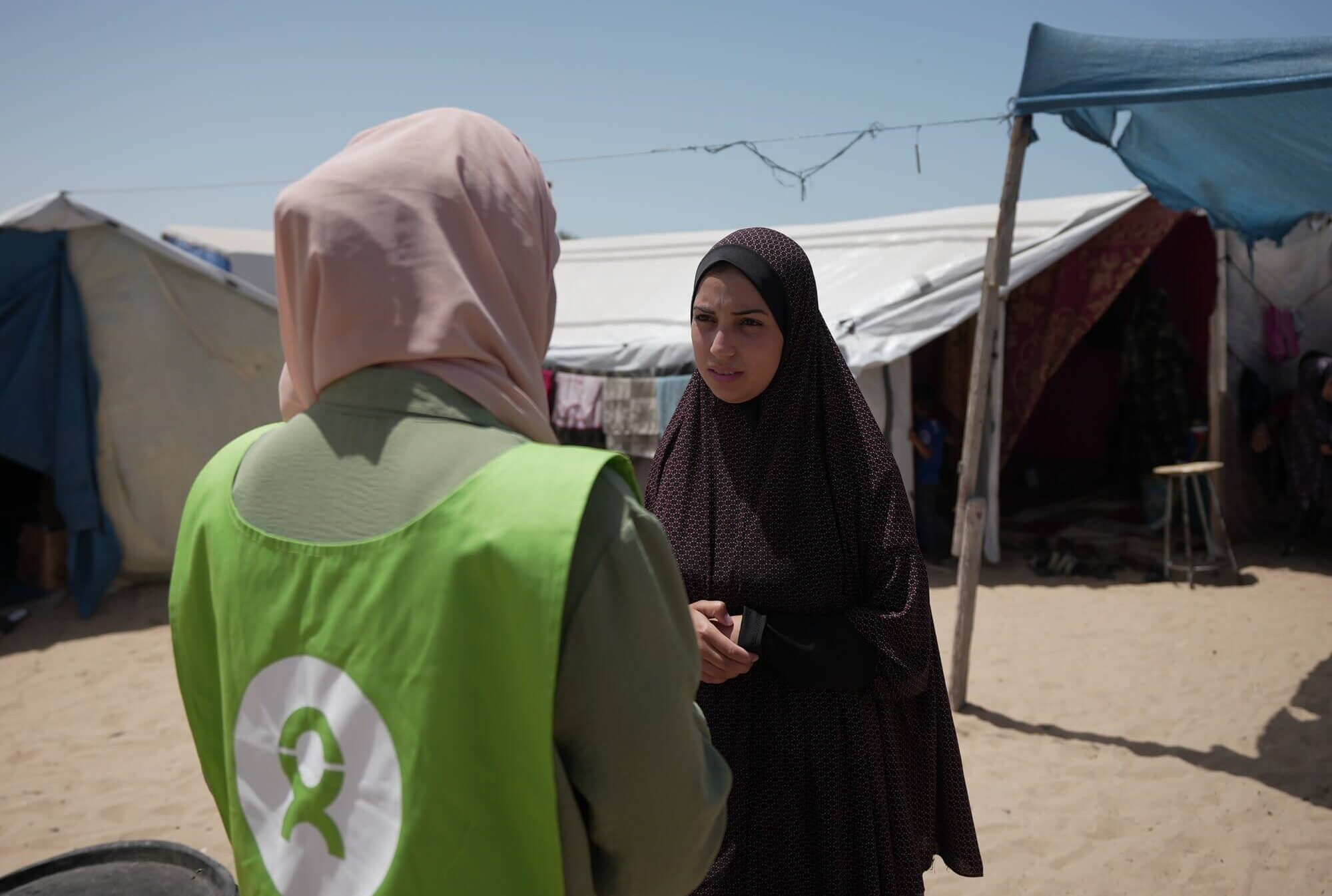On the penultimate day of the ATT negotiations we got the media’s attention early morning with a helicopter assembled on a New York rooftop, with the UN in the background.
Monday started with a press conference, where it was made clear to the world that the text on the table was not something that was going to have a major impact on the ground. In the plenary negotiators received Control Arms postcards that let them know the second draft text, released Friday, is not the treaty we’ve worked over a decade for.
We worked intensely with supporter governments throughout Saturday and Sunday, analysing the second text, and strategising with the progressive states, in a multitude of meetings. From this, we helped mobilise 103 States, lead by Ghana to deliver a powerful joint statement that the treaty text had taken a step backward and that it was not good enough. There was a lot of media around this, such as these Guardian and Reuters articles.
On the ground campaigning continued with delegates welcomed into the UN on Tuesday by a Control Arms Gospel Choir singing ‘Little Less Conversation a Little More Action’.
Campaigners passed out bullet shaped cookies to encourage delegates to “bite the bullet” and agree a strong ATT. This morning we handed out water bottles urging them to agree on a water tight treaty.
As I write, everyone is packing into the plenary hall to receive the final draft text. Today we will be intensely analysing it, and working with supporter governments to see if it is good enough, and what final changes we may be able to make.
We have been lobbying and working intensely on changes to the text – daily summaries have been provide every day by our excellent note-taking team; ATT Legal have been providing support to delegations; and we have been working really closely with supporters to try and get crucial loopholes in the text closed.
24 hours to go in these negotiations!
What you can do:
- Find out more about the Arms Trade Treaty
- Read Lois Belanger’s Huffington Post article about his time in the DRC
- Follow the discussion on Twitter with #ArmsTreaty
Tweet your support for an #ArmsTreaty
- New draft #Armstreaty has the potential to save lives, but more can be done. 24 hours to get a #bulletproof deal!
- Time is up for human rights abusers and dictators – 24 hours to finalise a strong #Armstreaty that saves lives.
- Almost at the finish line for a strong and effective #Armstreaty – 24 hours to cross it!
Anna McDonald is Oxfam International Head of Control Arms campaign.



